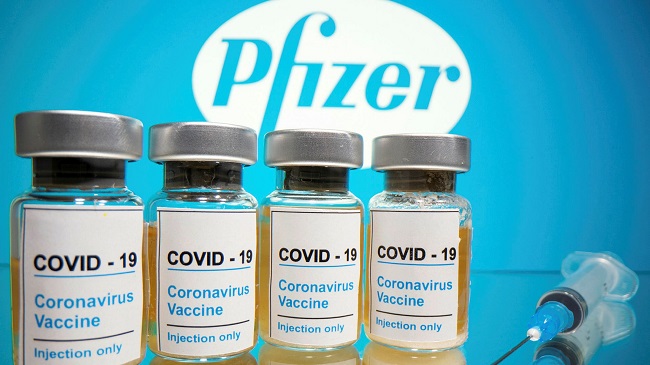British nurses and doctors began administering a coronavirus vaccine by German pharmaceutical company BioNTech and its U.S. partner Pfizer on Tuesday, December 8, 2020.

Residents in care homes as well as their caretakers are the first to receive the vaccine, which is given in two doses, 21 days apart.
The vaccine, which offers 95-per-cent protection from the virus four weeks after the first dose, is also the first jab using mRNA technology to be approved by a regulatory body.
It draws on the virus’ genetic code to train the body’s immune system to create antibodies against it.
However, the BioNTech/Pfizer vaccine comes with some tough restrictions.
Unlike its counterparts by U.S. company Moderna and Oxford/AstraZeneca, there are strict specifications involved when it comes to storage and shipping.
After being packed up at the Pfizer facility in Belgium, the vaccine doses were placed into temperature-controlled boxes, which can carry 1,000-5,000 doses, and shipped to Britain in lorries and aeroplanes.
A tracker inside the boxes provided minute-by-minute information on the temperature, which must be kept at around minus 70 degrees Celsius.
On arrival at a vaccination centre, each vial was mixed with saline solution before it could be administered, as part of World Health Organisation (WHO) guidelines.
According to BioNTech, which said up to 900 people had been working on the vaccine, more than 20 variants of virus mutations had been tested.
The vaccine was successful at “neutralising” them, which means they are confident the vaccine would protect people against the current mutations and any new ones which may appear over the next 12 months.
Over the next three to six months, BioNTech would also monitor how well the vaccine prevents people from transmitting the virus to others.
While it is not known how long the vaccine would protect people against the virus, BioNTech said it would continue to observe its volunteers to see how their protection progresses over the next few months.
